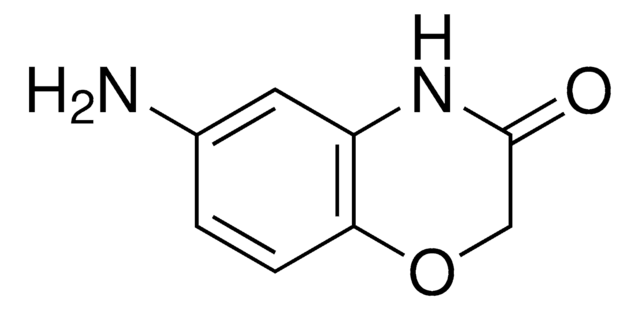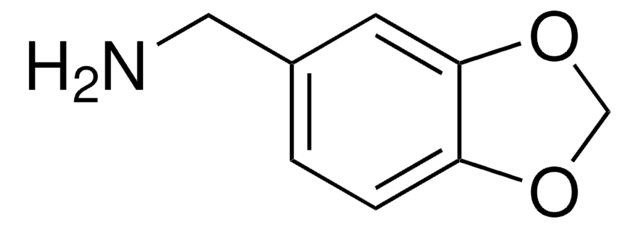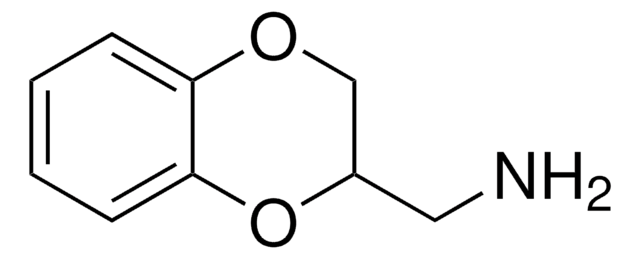193232
1,4-Benzodioxan-6-amine
≥98%
Synonym(s):
6-Amino-1,4-benzodioxan
About This Item
Recommended Products
Quality Level
Assay
≥98%
refractive index
n20/D 1.599 (lit.)
mp
29-31 °C (lit.)
density
1.231 g/mL (lit.)
SMILES string
Nc1ccc2OCCOc2c1
InChI
1S/C8H9NO2/c9-6-1-2-7-8(5-6)11-4-3-10-7/h1-2,5H,3-4,9H2
InChI key
BZKOZYWGZKRTIB-UHFFFAOYSA-N
Application
Signal Word
Warning
Hazard Statements
Precautionary Statements
Hazard Classifications
Acute Tox. 4 Oral - Eye Irrit. 2 - Skin Irrit. 2 - STOT SE 3
Target Organs
Respiratory system
Storage Class Code
10 - Combustible liquids
WGK
WGK 3
Flash Point(F)
235.4 °F - closed cup
Flash Point(C)
113 °C - closed cup
Personal Protective Equipment
Certificates of Analysis (COA)
Search for Certificates of Analysis (COA) by entering the products Lot/Batch Number. Lot and Batch Numbers can be found on a product’s label following the words ‘Lot’ or ‘Batch’.
Already Own This Product?
Find documentation for the products that you have recently purchased in the Document Library.
Our team of scientists has experience in all areas of research including Life Science, Material Science, Chemical Synthesis, Chromatography, Analytical and many others.
Contact Technical Service









